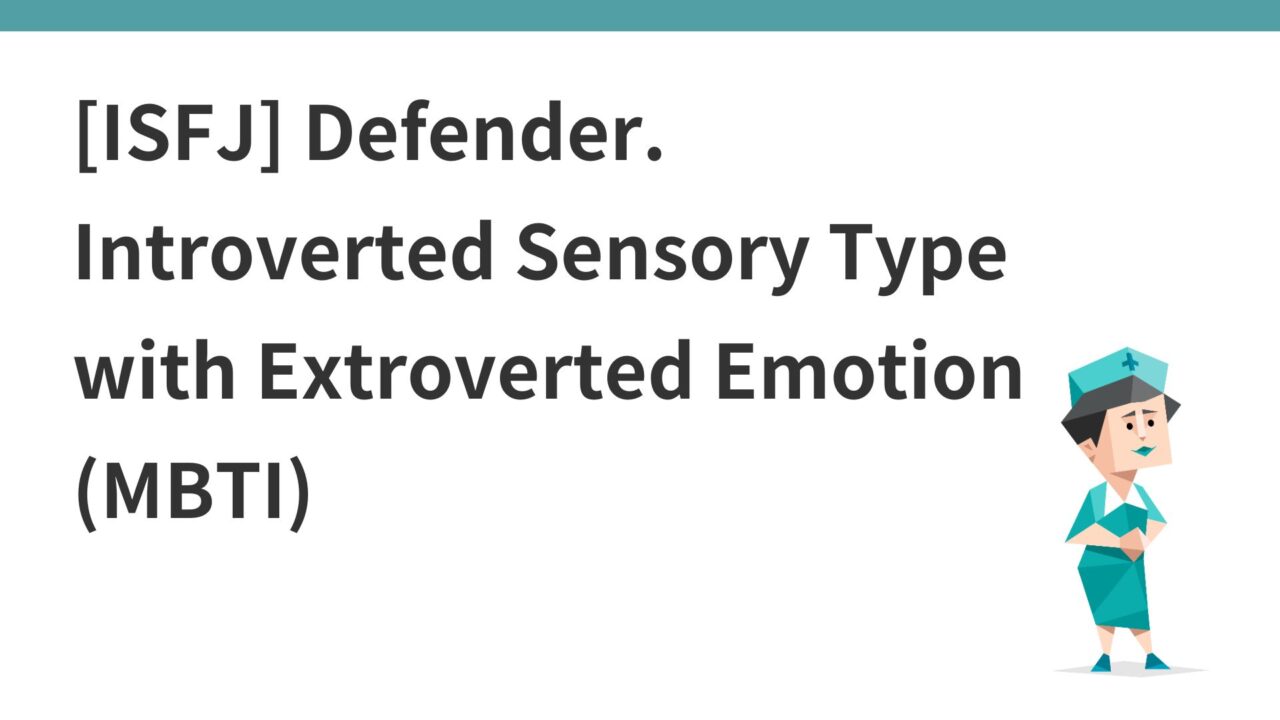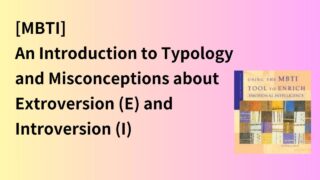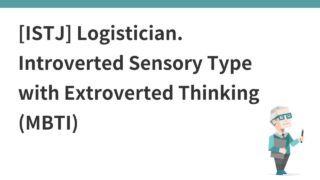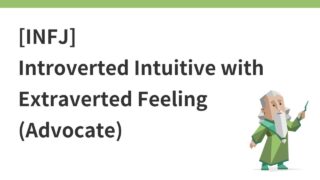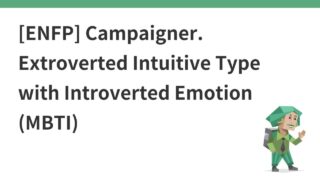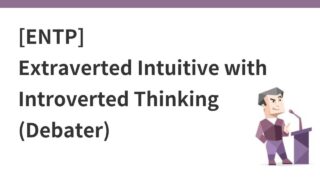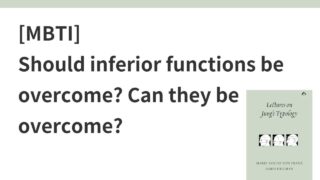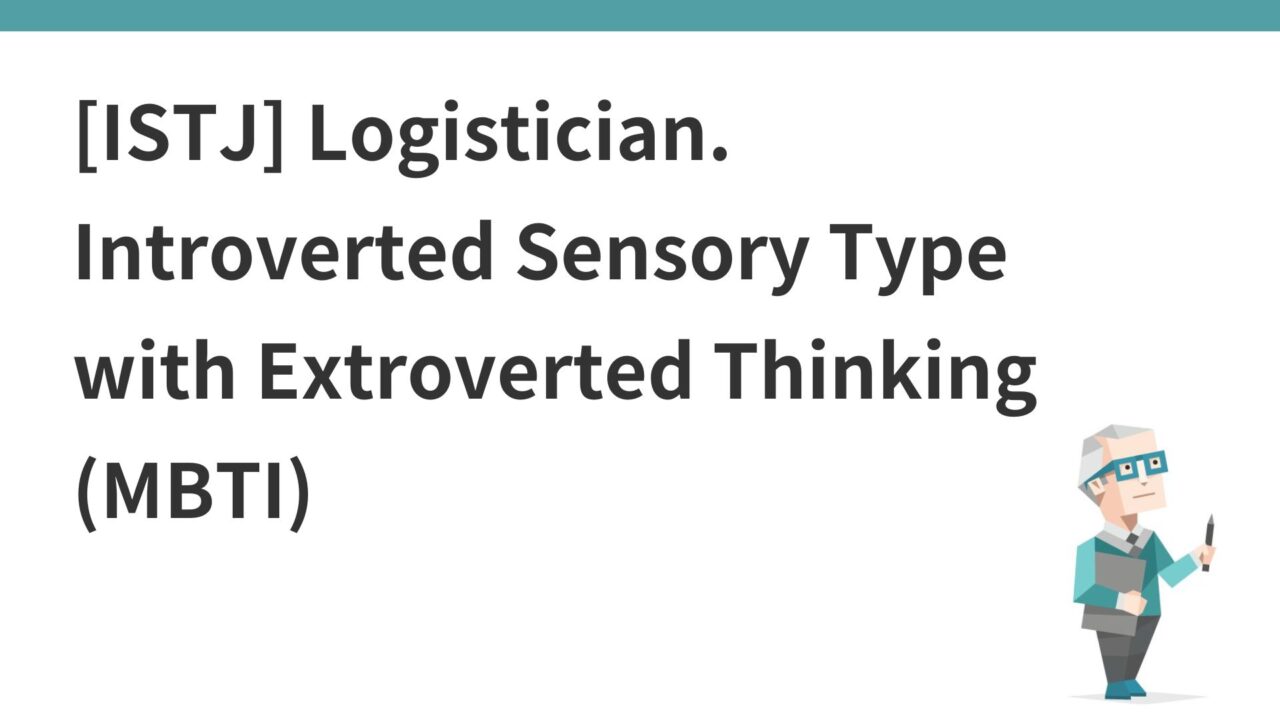- Introduction.
- Public’s impression of ISFJ
- Si-Ne: Introverted sensory type with extroverted feelings
- Characteristics and decision-making process for primary and auxiliary functions
- Difference between ISFJ and ISTJ
- Difference between ISFJ and INFJ
- Impression to the surroundings
- To strengthen the extroverted intuition (Ne) of the inferior function
- Communication Features
- Reactions during stress and points for improvement
Introduction.
I will summarize the following perspectives on each MBTI personality type.
- Public Impressions
- Characteristics of the primary and auxiliary functions and the decision-making process
- Impression to the surroundings
- Inferior Functions and How to Enhance Inferior Functions
- Communication Features
- Reactions during stress and points for improvement
In this issue, we discuss ISFJ.
Public’s impression of ISFJ
If you Google ISFJ, related searches include “ISFJ advocate,” “ISFJ compassion,” “ISFJ harmony,” and “ISFJ gentle.”
Described as “advocates,” celebrities include Mother Teresa, Selina Gomez, and Beyonce.
Si-Ne: Introverted sensory type with extroverted feelings
ISFJ cognitive functions in order of development are as follows
- Primary function (the function you are most aware of): introverted sensation (Si)
- Auxiliary functions (functions that function well but are difficult to recognize in oneself): extraverted affect (Fe)
- Third function: introverted thinking (Ti)
- Inferior function: extroverted intuition (Ne)
The following is a brief description of how each cognitive function affects an individual’s perception and behavior
| cognitive function | Inward (i) | Outgoing (e) |
| Intuition (N) | Pattern recognition – inner insights and future predictions | Explore new possibilities – ideas and abstract concepts |
| Thinking (T) | Logical analysis – building internal theories and organizing thoughts | Objective judgment – decision making for efficiency and fairness |
| Emotion (F) | Deep empathy – a deep understanding of personal feelings and values | Social harmony – forming emotional connections with others |
| Sensation (S) | Details of reality – reflection of inner concrete memories and experiences | Actual experience – direct interaction and action with the outside world |
Si-Fe: Determine the best way to respond based on past experience and facts, taking into account the feelings and needs of others.
Characteristics and decision-making process for primary and auxiliary functions
Introverted Sense (Si): Focus on Reality The introverted sense, a primary function of ISFJs, is adept at understanding and evaluating the real world based on past experiences and detailed facts; ISFJs value consistency and order and tend to adhere to an existing framework. In everyday life, they are characterized by planning and attentiveness and often take a reliable, practical approach.
Extroverted affect (Fe): social harmony The second function of ISFJ, extraverted affect, focuses on relationships with others and social harmony. It is important to maintain harmony with those around us and to consider what behavior is most beneficial to others.
For example, the decision-making process when the ISFJ takes on a new project is as follows.
First, use Si to recall successful methods from previous projects, and then build on them to develop a current project plan. Use lessons learned from past performance to plan every detail. Next, use Fe to consider each team member’s role and feelings and create an environment where everyone is comfortable working together. Listen to the team and make sure everyone is comfortable with the project.
ISFJs have Fe in the second function, so they have a strong need for approval, and it is not what they want to do, but how they look to others around them that is important, and in a way that is what they want to do. Therefore, when he is by himself, he does not have to worry about what others think of him, so he can be appropriate about food and personal things. He is not too concerned with details and often makes quick decisions.
On the other hand, when they are with others, they tend to be indecisive, not asserting their own opinions strongly enough to be considerate of others’ opinions and feelings. They try to keep the relationship smooth by adapting to the other person.
Difference between ISFJ and ISTJ
Both ISFJs and ISTJs have introverted sensation (Si) as a primary function, but have different auxiliary functions, resulting in differences in cognitive function combinations and behavioral priorities.
Both evaluate and understand reality based on past experiences and memories, but ISFJs tend to have an empathic, supportive attitude toward others, whereas ISTJs tend to have a logical, objective approach toward others.
Difference between ISFJ and INFJ
Both ISFJs and INFJs have an extraverted effect (Fe) as an auxiliary function, but their primary functions are different, resulting in differences in cognitive function combinations and behavioral priorities.
Both have an empathetic and supportive attitude toward others in order to realize their goals, but ISFJs emphasize information based on concrete, past experiences, whereas INFJs have introverted intuition (Ni) as their primary function and emphasize information based on abstract, future possibilities, and insights.
Impression to the surroundings
- Caring: ISFJs are sensitive to the feelings and needs of others and have a supportive attitude. They are kind to those around them and often help those in need.
- Highly empathetic: Has a high ability to understand and empathize with the feelings of others. Good at keeping relationships smooth.
- Conservative and cautious: Tend to respect past experience and existing frameworks, and value stability and tradition. They act cautiously to minimize risk and proceed with caution.
- Reserved and introverted: reserved in social settings, often giving the impression of being introverted.
- Inflexible: ISFJs tend to adhere to a plan or method once established and may have difficulty responding flexibly to new situations or changes. They may be conservative about new ideas or inexperienced approaches and slow to accept change.
My impression is that “dedication” is the most appropriate word for this type of person.
ISFJs have a strong dependence on others and desire for approval, for better or worse, and since “what I want to do = the role expected of me by those around me”, their own intentions and wishes tend to be vague. When asked by superiors or colleagues, “What do ISFJs want to do? What kind of career do you want? When asked about their own intentions, they tend to clam up because “what I want to do = what the people around me want, what the people around me expect of me, and what is best for the people around me to be satisfied with.
Moreover, because they are harmonious and not very assertive, they may be misunderstood by their superiors as not knowing what they are really thinking. This can lead to the danger of being used as a handyman.
Rather than a spirit of complete service to others (although some may do so), they often support others for their own satisfaction; for ISFJs, supporting others and keeping them satisfied is synonymous with their own sense of satisfaction.
To strengthen the extroverted intuition (Ne) of the inferior function
ISFJs have relatively the least developed extroverted intuition (Ne), a recessive function.
This function is the ability to explore new ideas and possibilities and to think outside of existing frameworks; for ISFJs, this function is underdeveloped and can cause stress and anxiety.
Be open to new experiences
Exercise extroverted intuition by stepping out of the familiar by visiting new places and trying unknown activities. Also, stimulate Ne by exposing yourself to a world beyond reality through books, movies, games, etc. Don’t think too much, just do it right away!
Incorporate creative activities
Incorporating creative activities such as drawing, writing, and making music into one’s daily routine can help activate the Ne
Attempt to brainstorm
Allow time for unconstrained idea generation and practice expanding your thinking freely. This helps explore new perspectives and possibilities. Encourage the development of Ne by interacting with people with different opinions and perspectives and trying to understand their ideas. Involve 2-3 more people than usual in the problem-solving process, for example.
What we need to learn to respect different types
Incidentally, the types with this extroverted intuition (Ne) most developed are ENFPs and ENTPs; ENFPs and ENTPs are good at exploring new ideas and possibilities, and always feel like their antennae are open to the outside world.
From the ISFJ’s point of view, ENFPs and ENTPs are always thinking of new and fluffy things and being too paranoid. However, ENFPs and ENTPs’ willingness to explore new ideas and possibilities may help ISFJs to find a balance and may be helpful in many ways.
We need to learn that an analytical and resourceful person shows consideration in his or her own way.
Communication Features
Indirect expression (guess what)
- May avoid direct expressions and express opinions in an indirect manner. When expressing negative opinions or criticisms, in particular, they take care not to hurt the other party.
Practical Topics
- Prefer practical and concrete topics. Interested in realistic and practical information rather than abstract theories and ideas.
Reserved and introverted
- He rarely asserts his opinions strongly and takes a reserved attitude. He respects the opinions of others and often plays a supportive role rather than taking the lead himself.
Emphasis on harmony
- Tend to emphasize harmony in communication and avoid confrontation. Even when there are differences of opinion, they try to reach a compromise through gentle discussion.
Conservative and tradition-oriented
- Prefers to speak from past experience and existing frameworks rather than new ideas.
- When directed to change a policy or do something they are not comfortable with, they will reject it in their mind. It just doesn’t come out boldly in attitude, but it comes out softly, wanting to be understood.
Reactions during stress and points for improvement
When ISFJs are exposed to stress, their primary function, introverted sensation (Si), may be overexpressed or an inferior function, and extroverted intuition (Ne), which is usually underused, may surface, causing a series of typical reactions.
Disgust and upset when arguments and disputes arise or disagreements are prolonged.
Reactions under stress
- Stress due to an excessive sense of duty: the primary function, introverted sensation (Si), is overexpressed and becomes overly concerned with details. They may overreact to small mistakes or inadequacies and lose sight of the big picture of things.
- Excessive fixation on details: the primary function, introverted sensation (Si), is over-expressed and too fixated on trivial details. Overreacting to small mistakes or imperfections, inhibits the overall progress.
- Emotional suppression: When stress is heightened, one keeps emotions bottled up inside and avoids showing one’s difficulties to others. This can lead to increased feelings of isolation and loneliness.
- Sensitive to criticism: Sensitive to criticism and negative feedback from others, which may lower self-esteem. This may lead to low self-esteem.
- Extroverted intuition ( Ne) out of control: Extroverted intuition (Ne), an inferior function that is not usually used much, surfaces and overthinks extreme possibilities and scenarios. Worst-case scenarios and irrational fears plague us and increase our anxiety.
- Increased perfectionism: They may put pressure on themselves to make everything perfect and demand perfection from others. As a result, they may become overly critical of themselves and those around them.
- Physical: Stress can affect the body, causing physical symptoms such as fatigue, headaches, and indigestion. This may further increase stress.
Key Points for Improvement
- Have time to relax: When feeling stressed, set aside time to relax and try not to obsess over too many details. Try relaxation techniques such as walking or meditation.
- Encourage flexible thinking: Avoid excessive adherence to details by trying new perspectives and approaches. Broaden your perspective by incorporating the opinions of others.
- Have a positive perspective: Do not get caught up in extreme possibilities or worst-case scenarios. Look at positive daily events and be grateful for them.
- Find balance: strike a balance between work and personal life and avoid excessive stress. Recognize your limitations and try to get some rest.
While ISFJs are loved by many for their compassion and sense of responsibility, their resistance to change and self-sacrificing attitudes can be a challenge. While maintaining this balance, it is important for ISFJs to be attentive to their own needs as well.
